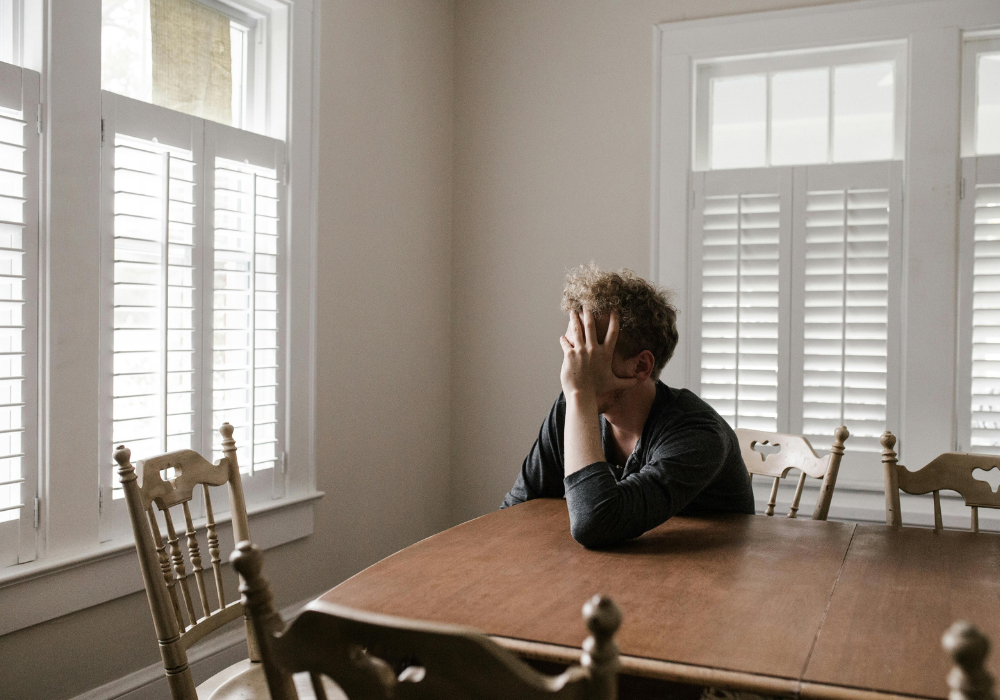Anxiety is a natural response to stress, but when it becomes overwhelming or constant, it can disrupt daily life and well-being. Millions of people experience anxiety disorders, making it one of the most common mental health challenges worldwide. In this blog, we’ll explore anxiety, its symptoms, potential causes, and the treatment options available to help individuals regain control over their lives.
What Is Anxiety?
Anxiety is more than occasional worry or fear. It’s a persistent feeling of dread or unease that can manifest physically and mentally, affecting your ability to function.
Symptoms of Anxiety
Anxiety symptoms vary from person to person, but common signs include:
- Excessive worry or fear.
- Restlessness or feeling “on edge.”
- Difficulty concentrating.
- Physical symptoms like increased heart rate, sweating, or headaches.
These symptoms often interfere with daily activities, making even simple tasks feel overwhelming.
(Insert an image of a person holding their head with a worried expression)
Types of Anxiety Disorders
Anxiety isn’t a one-size-fits-all condition. Common types include:
- Generalized Anxiety Disorder (GAD): Persistent, excessive worry about everyday matters.
- Panic Disorder: Sudden, intense episodes of fear accompanied by physical symptoms like chest pain.
- Social Anxiety Disorder: Intense fear of social situations and being judged.
- Phobias: Extreme fear of specific objects or situations, such as flying or heights.
What Causes Anxiety?
Understanding the root of anxiety is key to managing it effectively.
Biological Factors
An imbalance in brain chemicals like serotonin and dopamine can contribute to anxiety. Genetics also play a significant role—if a family member has anxiety, you may be more likely to develop it.
(Insert an image of a brain with highlighted neurotransmitters)
Environmental Triggers
Stressful life events, such as trauma, abuse, or significant changes like losing a job, can lead to anxiety. Prolonged exposure to high-stress environments often exacerbates symptoms.
Lifestyle and Health Factors
Poor sleep, an unhealthy diet, or a lack of exercise can also increase the likelihood of anxiety. Additionally, certain medical conditions or substance use may contribute to its onset.
Treatment Options For Anxiety
Thankfully, anxiety is treatable, and there are various approaches to help individuals cope.
Therapeutic Approaches
- Cognitive Behavioral Therapy (CBT): A widely used method that helps identify and challenge negative thought patterns.
- Exposure Therapy: Gradual exposure to feared situations to reduce avoidance and fear.
(Insert an image of a therapist and patient during a counseling session)
Medication
Medications like antidepressants and anti-anxiety drugs may be prescribed for severe cases. Always consult a mental health professional to determine if medication is right for you.
Lifestyle Modifications
Simple changes like regular exercise, mindfulness practices, and a balanced diet can significantly reduce symptoms. Practices such as yoga and meditation are particularly effective in calming the mind.
How To Support Someone With Anxiety
If someone close to you is struggling with anxiety, here’s how you can help:
Listen Without Judgment
Create a safe space for them to share their feelings without fear of criticism. Simply being present can make a difference.
(Insert an image of two friends talking in a supportive environment)
Encourage Professional Help
Suggest they speak with a therapist or counselor. Offer to help them find resources or accompany them to appointments if needed.
Be Patient
Recovery takes time. Celebrate small victories and avoid pushing them to “snap out of it.”
Conclusion
Anxiety is a challenging condition, but with understanding, treatment, and support, individuals can lead fulfilling lives. Recognizing the symptoms, identifying potential causes, and exploring treatment options are the first steps toward managing anxiety effectively.





